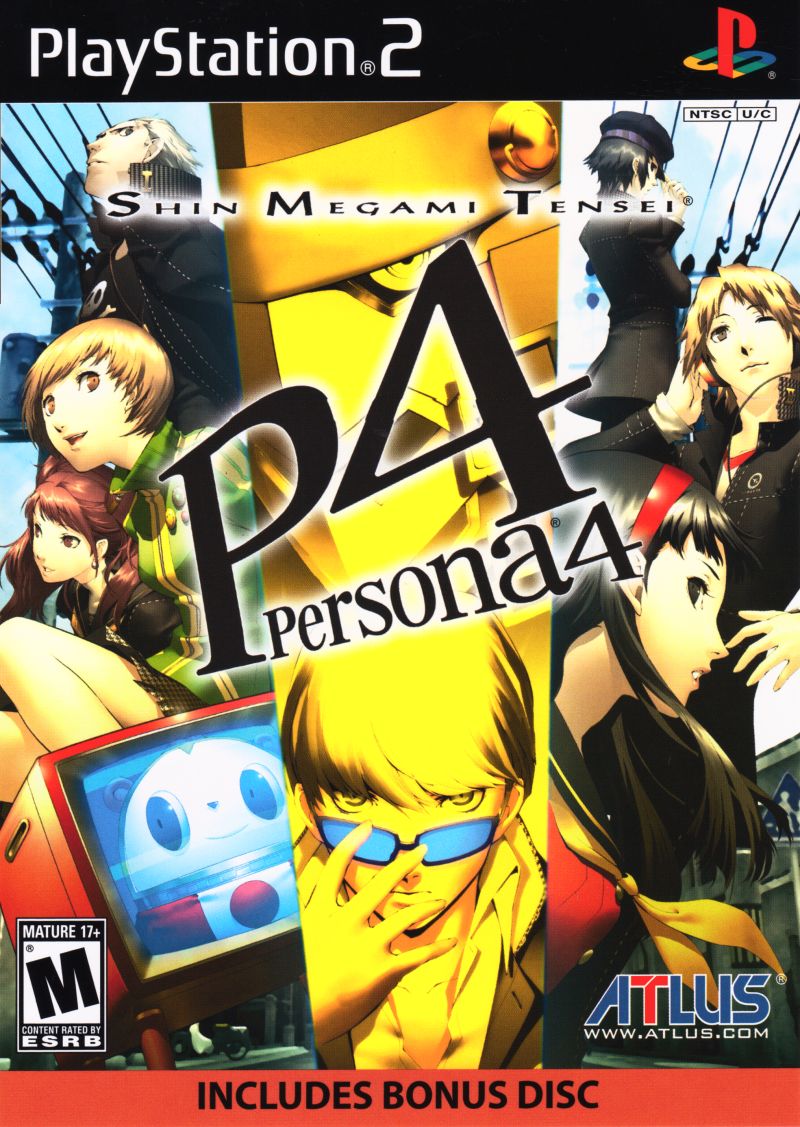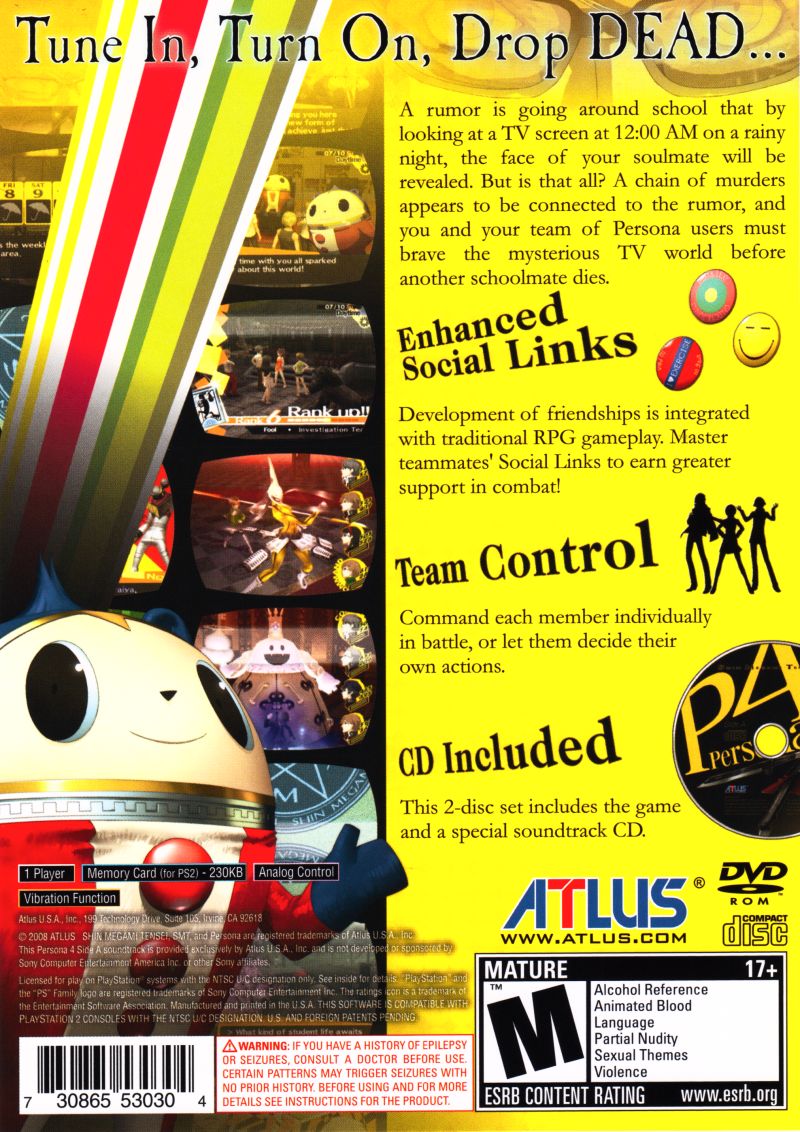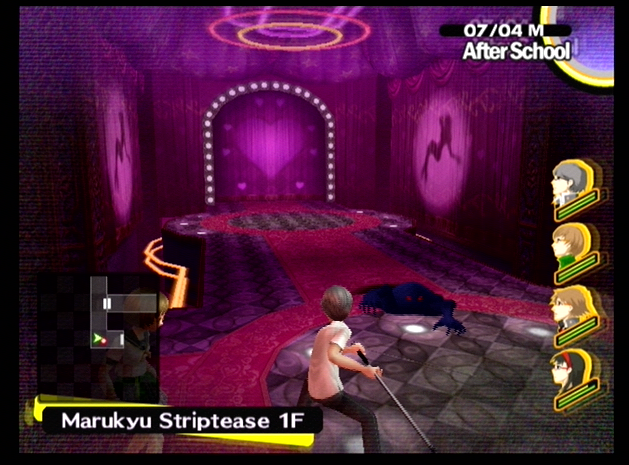Recently, strange murders began to occur in the quiet Japanese town Inaba. People are found dead under mysterious circumstances, and rumors say that something very wrong is going on with local TV system. A high school student moves into town, living at the house of his uncle, a police detective named Ryotaro Dojima. Shortly after his arrival, a TV announcer is found dead, her body hanging on a TV antenna. A while later, the student who discovered the victim is found dead as well. The new student and his friends accidentally discover that a parallel world exists within the realm of television, populated by supernatural creatures known as Shadows. The young people also find out that their own Shadow Selves are able to grant them unique powers. They must travel into that mysterious world and find out who is responsible for the murders.
Persona 4 is a Japanese-style role-playing game with light social simulation elements, similar in concept to its predecessor. The player controls a party of characters who must solve the crimes by venturing into the TV world and exploring its dungeons. Each dungeon is associated with a potential victim and carries a unique theme; their layouts, however, are randomly generated. Enemies are visible on screen, and contact with them leads to turn-based battles, which heavily rely on exploiting enemy weaknesses and unleashing powerful attacks after having successfully knocked them down. As opposed to the previous game, the player can issue direct commands to the main character’s companions during battles. Similarly to other Persona games, characters’ abilities and attributes change by merging them with supernatural beings known as Personae, which can also be fused at special locations to create more powerful ones.
Like the previous installment, the game is stretched across an entire school year, strictly following a real calendar, each day divided into different periods (school, after school, evening, etc.). The protagonist can interact with other characters, study, join clubs, take part-time jobs, etc. Spending time with characters builds up Social Links, which grant the player benefits when creating new Personae, unlock skills for companions, and increase the protagonist’s own attributes (Understanding, Diligence, Courage, Knowledge and Expression); these attributes, in turn, influence further interaction and character-building.
Cover Art:
Screenshots:





